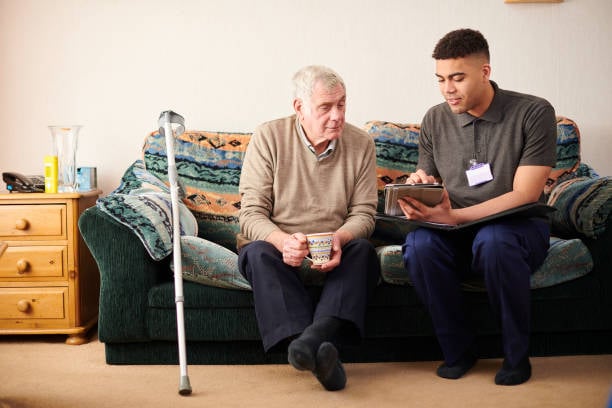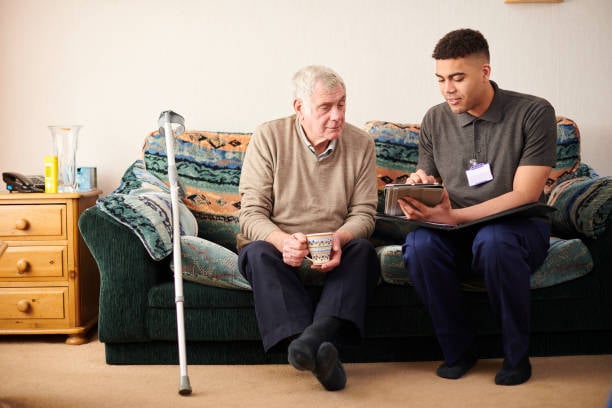A social worker is a professional who aims to enhance an individual's overall well-being and help meet the basic/complex needs of various communities and people. A hospice social worker can be a great resource for patients and families as they work though the anxiety and possible confusion surrounding the end-of-life process. While other team members, like nurse practitioners, will primarily focus on a patient's physical well-being, a social worker can help address the emotional and psychological needs as well as find resources available to help make the care process stress-free.
In this blog the Gulfside team will discuss how social workers support Gulfside's mission to ensure that patients receive restorative care no matter what phase or condition they might be in.
The Role Of A Social Worker During The End-Of-Life Process
Social workers can work in various fields, but when they choose to work in Palliative or Hospice care, they help families decide what it means to have a "good" death and achieve self-determined life closure. Whether a social worker is working in a hospital or care facility, they will work closely with the interdisciplinary team to understand the overall needs for a patient. Hospice social workers help minimize confusion surrounding a terminal or life-limiting illness and ensure that patients, caregivers, and families have a certain level of medical literacy.

For Social Workers, the overall goal is to make care accessible to those that need it most while addressing the emotional and mental health challenges found at end-of-life. Depending on the type of care a patient is receiving, the duties of a social worker may vary, but according to Socialworkers.org duties typically include:
- Providing psychosocial education to patients and family caregivers to enhance coping skills and increase knowledge of the role and philosophy of hospice and palliative care
- Providing counseling and education to help patients and families understand individual responses to anticipatory grief and grief for non-death losses, like functional and role changes.
- Educating on the use of nonpharmacological symptom management strategies
- Providing in-services to other service providers and organization
- Leading community education workshops and facilitating psychoeducational support groups
- Planning for discharge, placement, and the coordination of care
- Facilitating advance care planning and lifespan planning
- Intervening in crises and supporting patient and families in crises
- Mediating conflicts within families, between clients and the interdisciplinary team, and between service organizations
- Participating in interdisciplinary team meetings, care planning, and ethics consultations
- Advocating on behalf of the patient and family
Identifying and linking clients with resources
- Identifying and linking clients with community and other agency resources
Why Social Workers Are Vital For Advanced Care Planning
Life is full of tough decisions and conversations that can make us feel vulnerable, lost, and confused. As patients begin their end-of-life journey, the need to ensure that communication among family, and/or their support systems, becomes critical. Establishing a care plan for the first time can be overwhelming for a patient and their caregiver.
While the majority of chronic illnesses have clear indicators for when services like hospice might be beneficial, not every diagnosis is the same. A care team can be well informed about the different ways an illness will impact a patient's physical well-being, but emotional needs can be unpredictable. It is common for individual's receiving hospice, or other forms of care, to alter their care plan as the condition progresses. Most families act in good faith to promote their best interests, sometimes a loved one's choices can be hard to understand or articulate, or they may elicit an emotional response.

When a social worker is involved with advanced care planning for a family and their loved one, they can discuss what the standard may be as well as help patients and families decide how their care should look during the final remaining days. Placing the dreams, hopes, and goals of a loved one in the hands of a stranger can be frightening, but when trust is given, the social worker can ensure that all parties involved receive quality care and services. After the patient has passed, Social workers work jointly with chaplains, grief counselors, bereavement services, and volunteers to make sure that emotional and spiritual needs of the family left behind are met.
If you'd like to learn more about how social workers at Gulfside Healthcare Services can help you, a family member, or somebody you are caring for you can call 727-845-5707 or fill out the referral form for more information.





